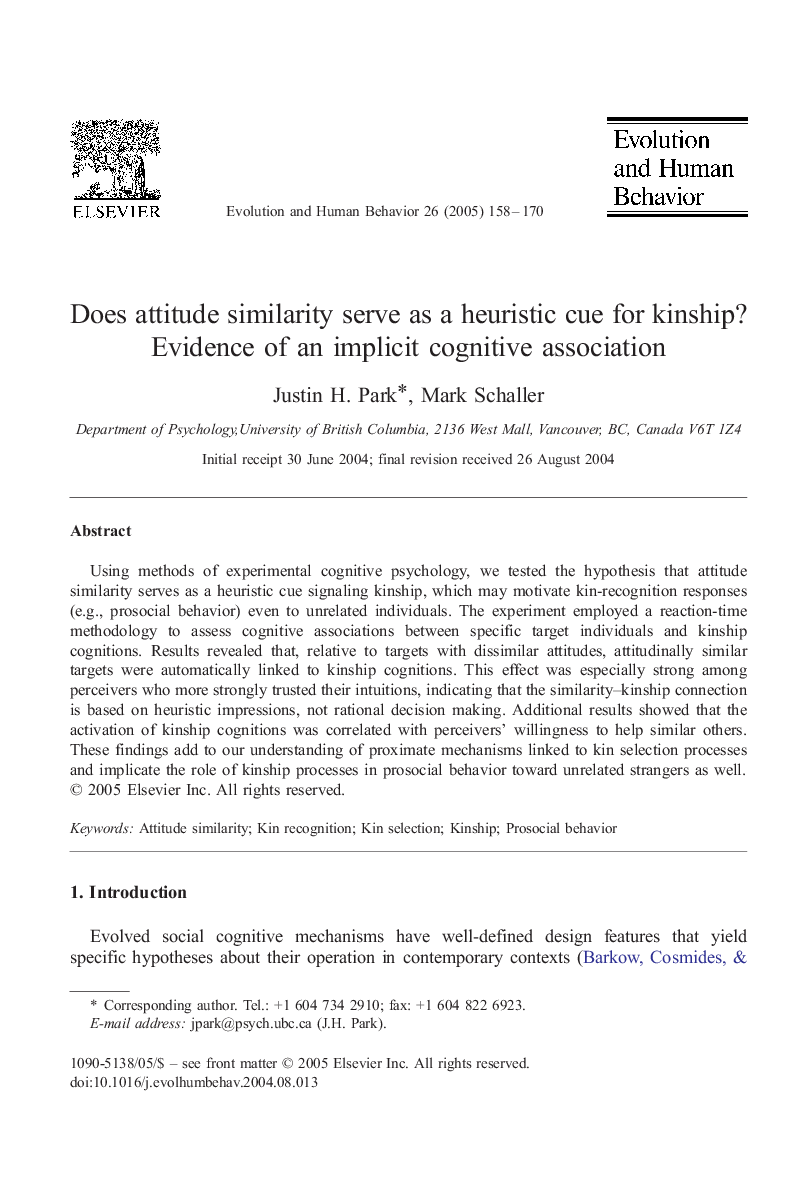| Article ID | Journal | Published Year | Pages | File Type |
|---|---|---|---|---|
| 10464218 | Evolution and Human Behavior | 2005 | 13 Pages |
Abstract
Using methods of experimental cognitive psychology, we tested the hypothesis that attitude similarity serves as a heuristic cue signaling kinship, which may motivate kin-recognition responses (e.g., prosocial behavior) even to unrelated individuals. The experiment employed a reaction-time methodology to assess cognitive associations between specific target individuals and kinship cognitions. Results revealed that, relative to targets with dissimilar attitudes, attitudinally similar targets were automatically linked to kinship cognitions. This effect was especially strong among perceivers who more strongly trusted their intuitions, indicating that the similarity-kinship connection is based on heuristic impressions, not rational decision making. Additional results showed that the activation of kinship cognitions was correlated with perceivers' willingness to help similar others. These findings add to our understanding of proximate mechanisms linked to kin selection processes and implicate the role of kinship processes in prosocial behavior toward unrelated strangers as well.
Related Topics
Life Sciences
Agricultural and Biological Sciences
Ecology, Evolution, Behavior and Systematics
Authors
Justin H. Park, Mark Schaller,
